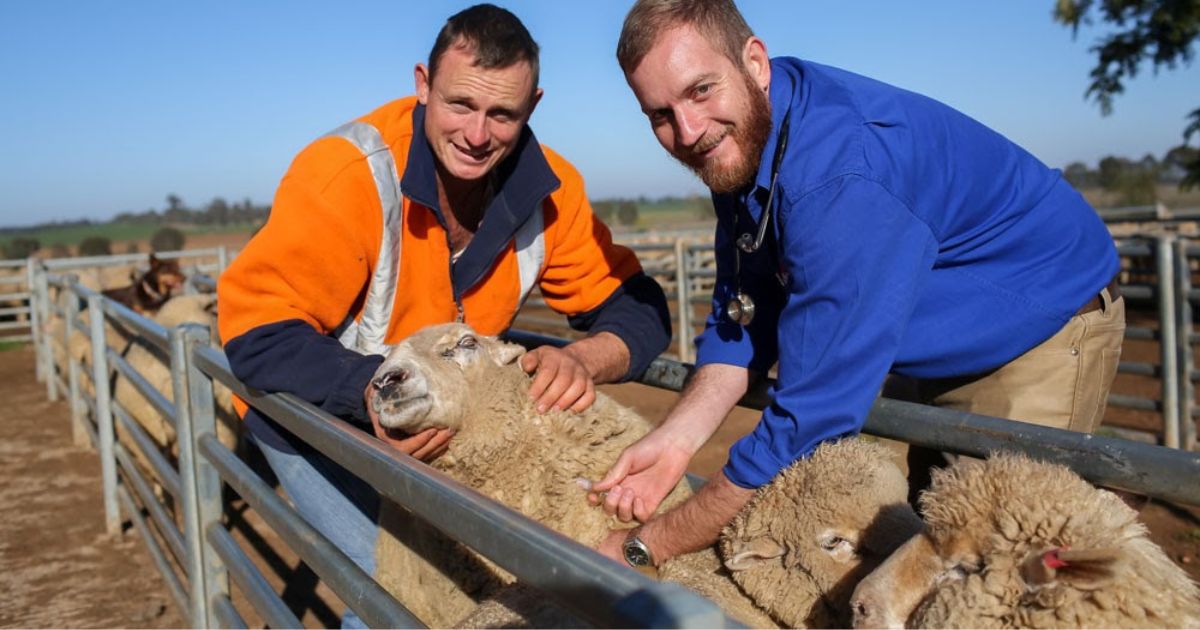Biosecurity
Local Land Services staff are on the ground to help protect our agricultural industry and environment from pests, diseases and weeds. Everyone has a shared responsibility to monitor for biosecurity risks and take action where needed.
The recent confirmation of foot and mouth disease and lumpy skin disease in countries close to our borders is a stark reminder of the threat of exotic animal diseases and other biosecurity risks.
Find out about Emergency Animal Diseases and what you can do to protect your farm and industry.
Look up local events with information on these diseases.
About biosecurity
Agricultural biosecurity emergencies are caused when pests (including locusts), diseases and weeds have a negative impact on the economy, local environment and community.
The NSW Department of Primary Industries (DPI) is the appointed combat agency for biosecurity emergencies and works with other agencies such as Local Land Services to prevent, prepare for, respond to and recover from emergencies affecting all animals and plants, both land and water.
The process of managing these emergencies includes prevention and preparedness to minimise the impact of outbreaks, responding to emergency incidents as soon as possible and conducting recovery operations.
We all play a role in preventing and preparing for biosecurity emergencies. Your actions will vary depending on the risks and emergencies that impact you, your animals, your property, your community and your industry. It is your responsibility to:
- plan before an emergency
- act during an emergency
- recover after an emergency
Visit the emergencies page on the DPI website for the current status emergencies impacting on animal, plant and agricultural in NSW.
Biosecurity is a set of preventative measures designed to reduce the risks of infectious disease transmission to and among livestock. It means doing everything you can to reduce the chances of an infectious disease being carried onto your farm/property by people, animals, equipment or vehicles.
What is animal biosecurity?
Maintaining animal biosecurity is all about protecting our economy, human health, and the environment from problems associated with pests and diseases of animals, and residues in animal products.
Local Land Services and DPI are partners in the delivery of animal biosecurity. We work with producers, animal owners, livestock industries, communities and other stakeholders to keep NSW animals and animal products healthy and safe.
Our district vets are a crucial link in the animal biosecurity chain. They collect surveillance information, give expert biosecurity advice to livestock owners and industries, and provide a vital front-line resource in protecting against animal pests and disease.
Livestock producers and animal owners are in the best position to protect their own animals, those of their neighbours, and the wider livestock industries, by adopting good agricultural biosecurity practices.
Find out how you can safeguard your livestock with on-farm biosecurity planning.
Reporting a biosecurity emergency
If you have an animal, plant or agricultural emergency to report, please get in touch with the following authorities:
000 - Life-threatening emergencies, including bush fires
NSW State Emergency Service (SES) - For emergency help in floods and storms call 132 500
Emergency animal diseases - Hotline - 1800 675 888 (24 hours)
Emergency plant pest reporting - Hotline - 1800 084 881
Aquatic pests and diseases - Hotline - (02) 4916 3877 (recorded 24 hour hotline)
Local Land Services - To report locusts and agricultural damage in natural disasters call 1300 795 299

Biosecurity legislation
Prohibited matter animal diseases and pests are listed in Schedule 2 of the Biosecurity Act 2015.
The Biosecurity Act 2015 commenced in mid-2017, replacing 10 whole existing Acts and parts of four other Acts. The primary objective of the Act is to provide a framework for the prevention, elimination and minimisation of biosecurity risks.
The Biosecurity Act 2015 provides greater flexibility and improved capacity in the response, management and control of biosecurity risks, and supports the vision of the Biosecurity Strategy 2013-2021. That is, biosecurity is a shared responsibility between government, industry and the community.
It provides for a range of tools and powers that can be used to support risk-based decision making and allow for increased efficiency and decreased regulation.
Visit the NSW Department of Primary Industries website to find out more.
NSW strategy and policy
LLS works alongside NSW Government agencies to protect the state from biosecurity threats, including animal and plant pests, diseases and weeds. The NSW Animal Biosecurity and Welfare Strategic Plan 2019-2023 guides priority activities to safeguard our economy, environment and community from diseases and pests that affect animals, as well as improve animal welfare outcomes.
It builds upon the NSW Biosecurity Strategy 2012-21 which outlines the responsibility of government, industry and people of NSW to work together and protect the economy, environment and community from the negative impacts of animal and plant pests, diseases and weeds